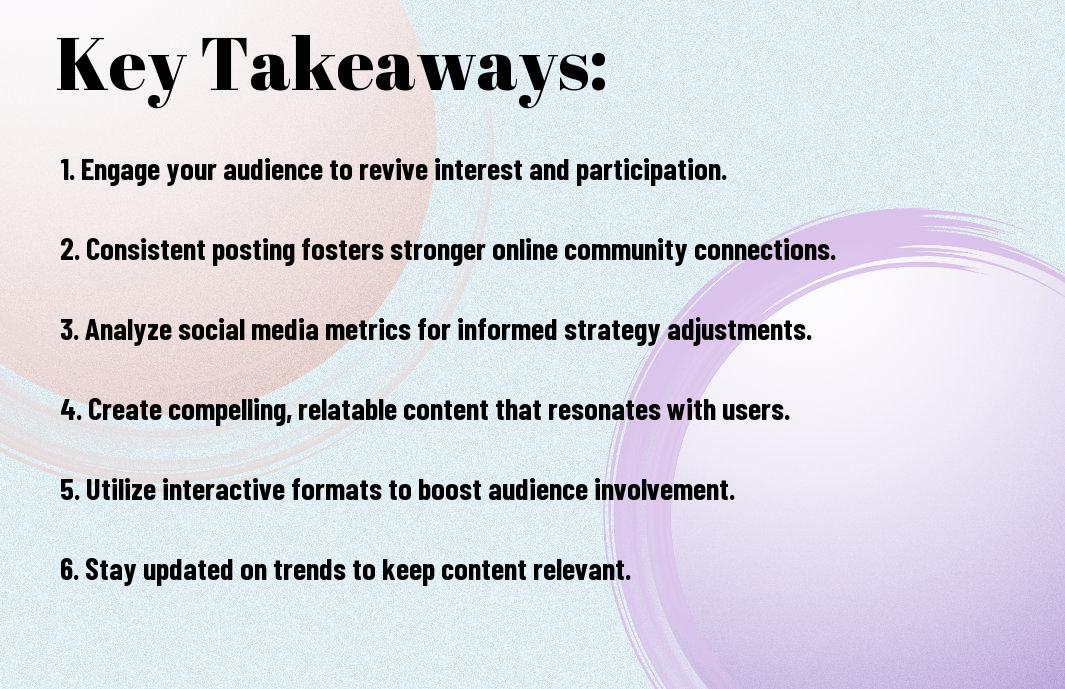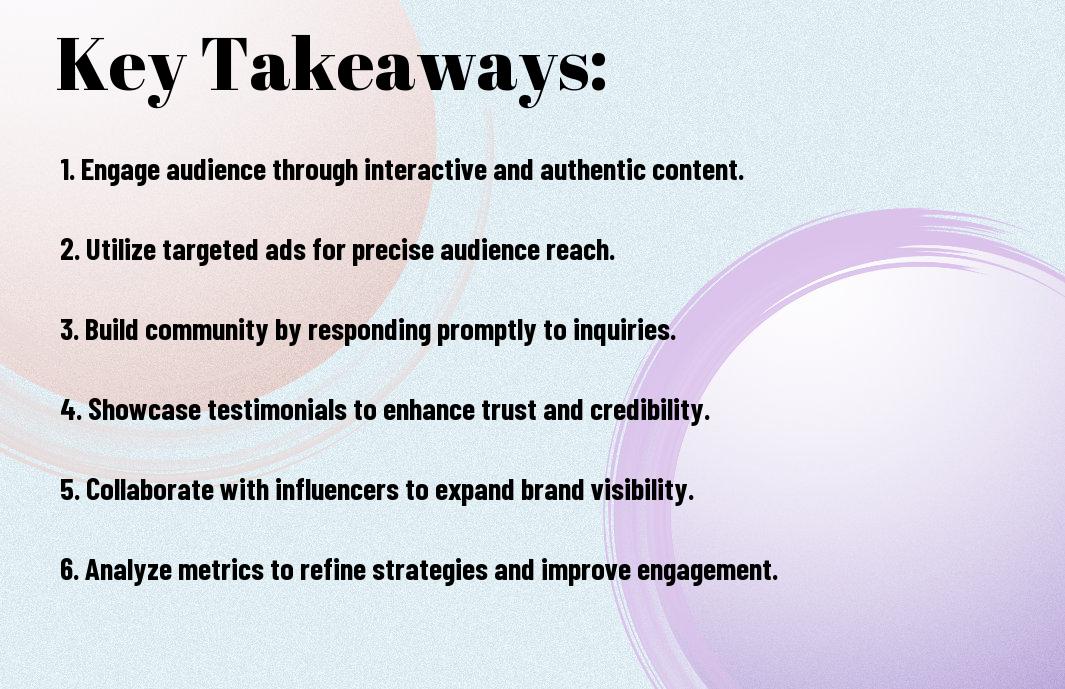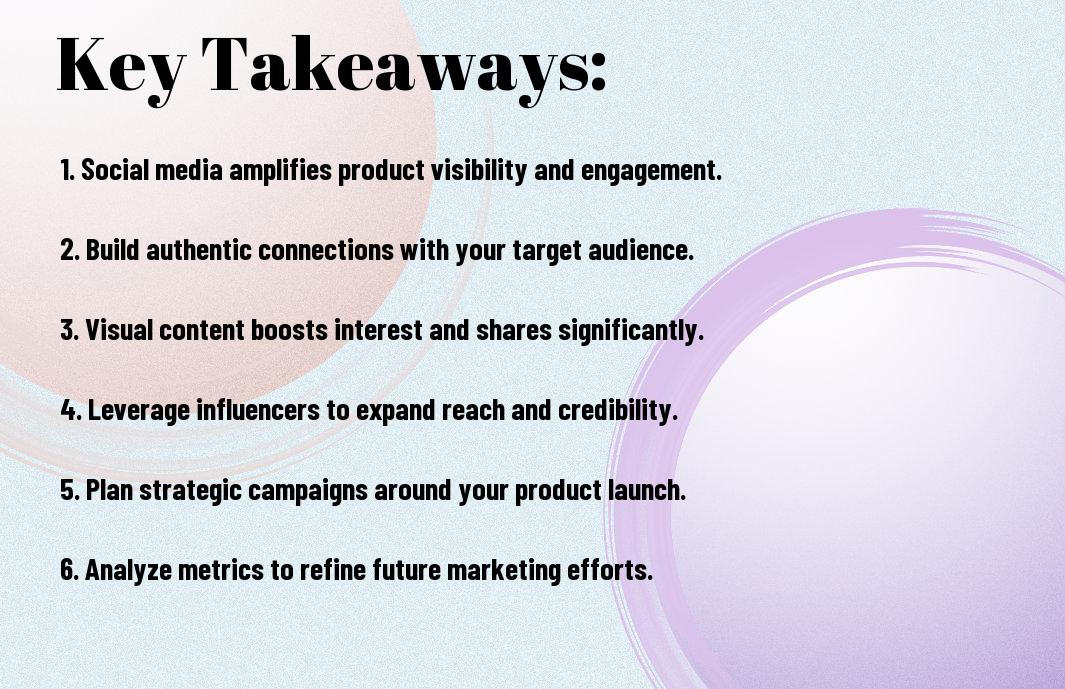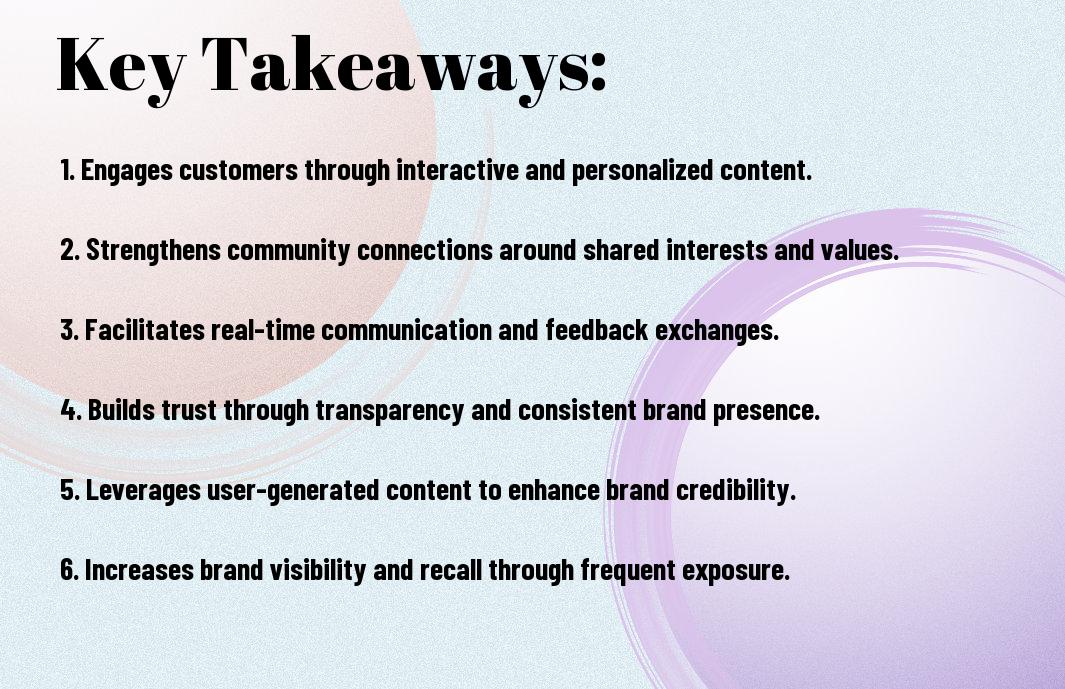You can significantly boost your brand’s online presence by leveraging social media platforms. As you navigate the digital landscape, you’ll find that social media offers unparalleled opportunities to increase your product’s visibility. By creating engaging content and strategically using social media channels, you can effectively reach your target audience and expand your brand’s reach, ultimately driving sales and growth for your business.
Key Takeaways:
- Social media platforms provide an extensive reach, enabling brands to showcase their products to a vast and diverse audience, thereby increasing their visibility and potential customer base.
- Effective utilization of social media involves creating engaging content, leveraging influencers, and running targeted advertisements to capture the attention of the desired demographic and drive interest in the brand’s products.
- By monitoring analytics and feedback on social media, brands can gain valuable insights into consumer preferences and behaviors, allowing them to refine their product offerings and marketing strategies to better meet the needs of their target market.
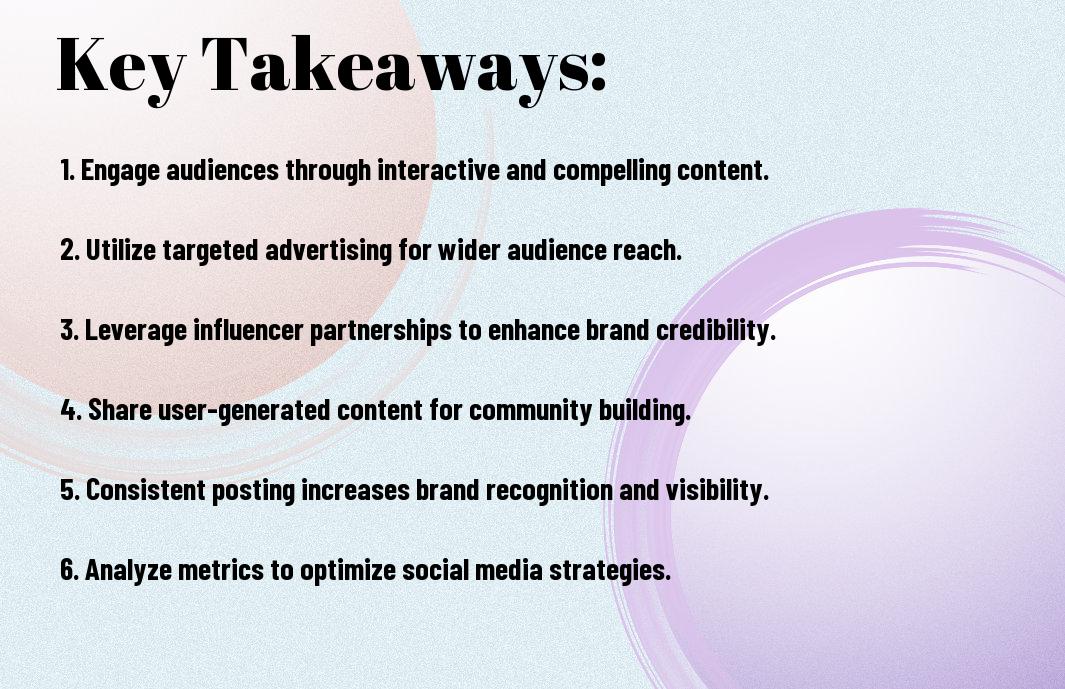
Social Media Platforms as Brand Amplifiers
Before leveraging social media, you need to understand its potential to boost your brand’s product visibility. Social media platforms can amplify your brand’s voice, increasing your reach and engagement with your target audience.
Platform Selection Strategy
Platform selection is key to effectively promoting your brand. You should choose platforms where your target audience is most active, ensuring your message reaches the right people.
Content Optimization for Each Channel
To optimize your content, you should tailor it to each social media channel, considering the unique characteristics and audience preferences of each platform. This will help you create content that resonates with your audience.
Platforms like Facebook, Twitter, and Instagram have distinct features and user behaviors, and you should adapt your content strategy accordingly. By doing so, you can increase the effectiveness of your social media marketing efforts and enhance your brand’s product visibility, allowing you to reach and engage with your target audience more efficiently.
Visual Storytelling Elements
If you want to capture your audience’s attention, visual storytelling elements are imperative for your brand’s product visibility on social media.
Brand Image Consistency
Imagine your brand’s image as a reflection of your values and mission, and consistency is key to creating a lasting impression on your audience, helping you build a strong brand identity.
Video Content Impact
Visually, video content can significantly enhance your brand’s product visibility, allowing you to showcase your products in a more engaging and dynamic way, making it more likely for your audience to interact with your brand.
In fact, you can leverage video content to demonstrate your products’ features, share customer testimonials, and provide tutorials, all of which can help increase your brand’s credibility and appeal to your target audience, ultimately driving more sales and revenue for your business.
Engagement Metrics and Analytics
Many social media platforms provide you with tools to track your brand’s performance, allowing you to gauge the success of your product visibility efforts. You can monitor metrics such as engagement rates, reach, and clicks to understand how your audience interacts with your content.
Key Performance Indicators
Performing regular checks on your social media metrics helps you identify areas for improvement, enabling you to adjust your strategy to better meet your goals. You can use these indicators to evaluate the effectiveness of your content and make data-informed decisions.
Data-Driven Decision Making
Around the clock, your social media analytics are working to provide you with valuable insights into your audience’s behavior and preferences. You can use this information to refine your marketing strategy and optimize your product visibility.
Further, by leveraging data-driven decision making, you can create a more targeted and effective social media strategy, increasing the likelihood of your products reaching the right audience and driving sales. You can analyze your metrics to identify trends and patterns, and adjust your content and advertising accordingly, ensuring that your brand remains competitive in the market.

Influencer Collaboration Strategy
Despite the numerous benefits of influencer marketing, you need to develop a well-thought-out strategy to maximize your brand’s product visibility. You can learn more about How to Enhance Product Visibility on Social Media? to get started.
Partner Selection Process
At this stage, you will identify potential influencers who align with your brand values and target audience, allowing you to narrow down your options and choose the best partners for your campaign.
Campaign Integration Methods
With the right influencers on board, you can explore various campaign integration methods, such as sponsored posts, product reviews, and giveaways, to showcase your products and reach a wider audience.
This approach enables you to leverage the influencer’s existing followers and create engaging content that resonates with your target market, ultimately driving more visibility and sales for your brand as you track the performance of your influencer collaborations and adjust your strategy accordingly to optimize your results.
Content Calendar Planning
Your social media strategy’s success relies on a well-planned content calendar, which helps you stay organized and ensures consistent posting. You can learn more about how social media enhances brand visibility by visiting How does social media enhance brand visibility and awareness for businesses to inform your content calendar planning.
Timing and Frequency
Behind every successful social media campaign is a well-thought-out timing and frequency strategy, which you can use to maximize your brand’s product visibility by posting at optimal times and frequencies that align with your target audience’s online behavior.
Seasonal Marketing Approaches
Behind the success of many brands is a seasonal marketing approach, which you can leverage to boost your brand’s product visibility by creating content and promotions that align with seasonal trends and holidays.
Marketing your products seasonally allows you to tap into existing consumer trends and behaviors, increasing the likelihood that your brand will be discovered by new customers, and you can use social media to amplify your seasonal marketing efforts and reach a wider audience, ultimately driving more sales and revenue for your business.
Customer Interaction Framework
Keep in mind that a well-structured customer interaction framework is crucial for your brand’s product visibility on social media, allowing you to engage with your audience and build a strong online presence.
Community Building Tactics
Beneath the surface of social media lies an opportunity to create a community around your brand, where you can share content, respond to comments, and foster loyalty among your followers, helping you to increase your product’s visibility.
Response Management Systems
Similarly, systems that enable you to manage responses to customer inquiries and comments are vital for maintaining a positive online reputation and encouraging engagement with your brand.
In fact, implementing an effective response management system allows you to track and analyze customer interactions, identify areas for improvement, and provide personalized support, ultimately enhancing your brand’s product visibility and customer satisfaction, as you are able to respond promptly and efficiently to your audience’s needs.
Conclusion
Summing up, you can leverage social media to significantly boost your brand’s product visibility. By creating engaging content and interacting with your audience, you increase your brand’s online presence, making your products more accessible to a wider audience, and ultimately driving sales and growth for your business, allowing you to reach your target market more effectively.
FAQ
Q: What role does social media play in increasing product visibility for my brand?
A: Social media platforms serve as an vital tool for enhancing product visibility by allowing brands to showcase their products to a vast and targeted audience. Through various social media channels, businesses can share high-quality product images, videos, and detailed descriptions, thereby increasing the chances of their products being discovered by potential customers. Effective use of hashtags, tagging, and geotargeting further amplifies the reach, making social media an indispensable component of any product visibility strategy.
Q: How can I leverage social media advertising to boost my brand’s product visibility?
A: Social media advertising offers a powerful means to increase product visibility by allowing brands to create targeted ads that reach specific demographics, interests, and behaviors. Platforms like Facebook, Instagram, and LinkedIn provide detailed targeting options and budget controls, ensuring that ads are seen by those most likely to be interested in the product. Additionally, social media ads can be optimized for various objectives, such as brand awareness, website traffic, or conversions, making them a versatile tool for enhancing product visibility and driving sales.
Q: What is the importance of content quality in social media for product visibility?
A: High-quality content is paramount for capturing the attention of potential customers and enhancing product visibility on social media. This includes posting well-designed product images, engaging videos, and informative product descriptions that highlight the unique features and benefits of the product. Consistency in content quality and posting schedule helps in building a strong brand image and keeps the audience engaged, thereby increasing the likelihood of products being shared, liked, and commented on, which further boosts visibility through social media algorithms.
Q: Can influencer partnerships help in increasing product visibility on social media?
A: Partnering with influencers can significantly contribute to increasing product visibility on social media. Influencers have an established audience that trusts their recommendations, and when they feature a product in their posts, it exposes the brand to a new and often larger audience. Choosing influencers whose niche aligns with the brand’s products ensures that the product is showcased to potential customers who are already interested in similar products or services, thereby enhancing the product’s visibility and credibility among the target audience.
Q: How can I measure the effectiveness of social media in enhancing my brand’s product visibility?
A: Measuring the effectiveness of social media efforts in enhancing product visibility involves tracking several key performance indicators (KPIs). These include engagement metrics such as likes, shares, and comments on product posts, as well as website traffic and conversion rates generated from social media channels. Utilizing analytics tools provided by social media platforms or third-party software can offer detailed insights into how different content types and advertising strategies are impacting product visibility. By regularly analyzing these metrics, brands can refine their social media strategies to optimize product visibility and overall marketing performance.


